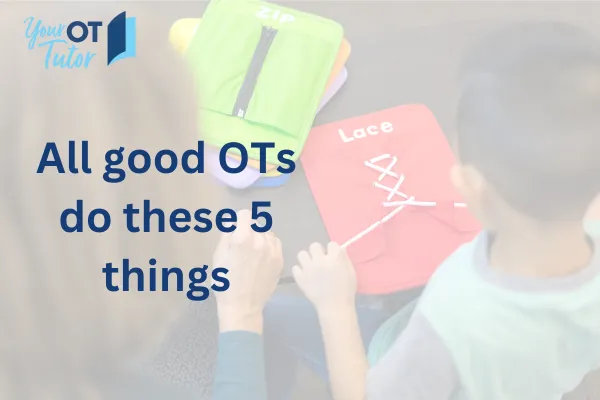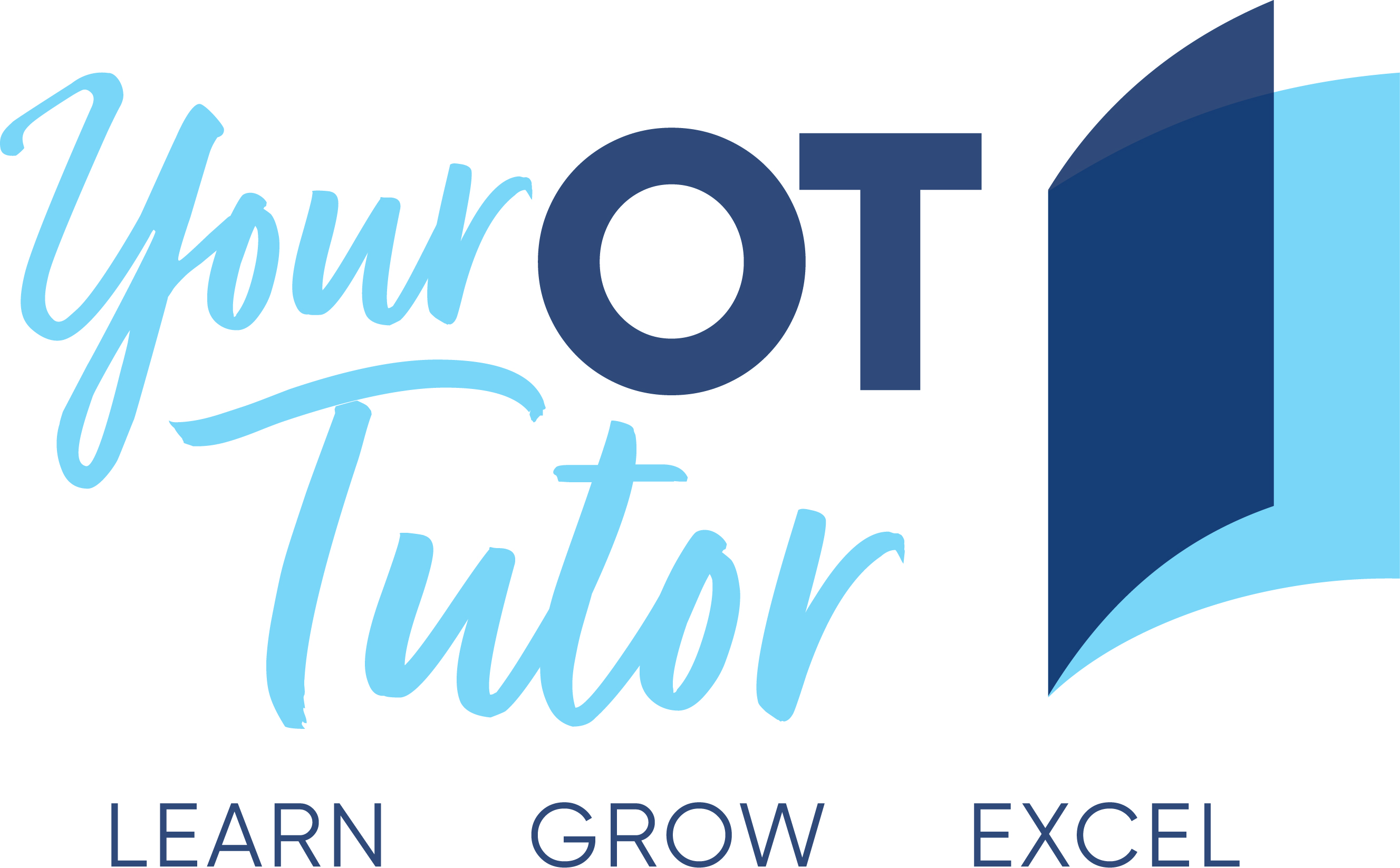THE YOUR OT TUTOR BLOG
Articles on important topics for occupational therapists...

All good OTs do these 5 things
If you’re an OT working within the NDIS, you may have heard there are new Therapy Support Guidelines that we now need to work in alignment with. Yep – it’s yet another NDIS change to understand and adapt to in 2025
But the good news is, while it will involve yet another tweak to your report templates, some of the key principles in these new guidelines actually align with good OT practice! I’m going to unpack five of these key principles now.
1. We need to set SMART goals
The new guidelines mention the word “goals” 27 times! So while there has always been a need to link any therapy support we provide back to the participants overall goals, you can guarantee they’ll definitely be checking this now in any plan review reports. The NDIA will be closely scrutinising our reports looking for signs that any money invested in capacity building is paying off, so they’ll be looking for evidence that participants are achieving their goals.
My hot tip is to set goals that are SMART – even if you don’t use the SMART language or format when speaking with your client, the principles fit nicely with what the NDIS will want, so make sure you have thought about the SMART goal elements in your own reasoning at least. Remember, they will be looking for success, so don’t set the bar so high that you won’t be able to demonstrate that you’ve achieved any progress! Short-term, specific goals focused on a particular activity will be the winners.
2. Make sure you measure outcomes
With the big focus on setting goals, it makes sense that the NDIA also want us to measure outcomes. If you’re an OT who delivers capacity building services, and you’re not already currently collecting some sort of baseline measure to track your client’s progress, you need to start now! Sometimes there could be a standardised outcome measure perfect for what you need, other times keeping track of some numbers can work too, such as improvements in time taken to complete tasks, or the number of times assistance is required to resettle overnight.
While as OTs we will be interested in tracking improvements in functional performance, participation and quality of life, also think about what the NDIA will like to see – examples of how you have saved them money! Unfortunately, while improvements in well-being are great outcomes to be achieving, we’ll likely make more of an impact if we can show how our therapy has resulted in decreased need for support workers, or a decrease in the frequency of therapy supports required.
3. Use an evidence-based approach
The guidelines specifically mention the use of research evidence, but they also will consider things like evidence that the supports we are recommending have worked with other people with similar needs, and they will also consider our clinical expertise.
While I don’t think we will need to turn our NDIS reports into referenced essays, it would be handy to know what the research evidence says about supports you commonly recommend and have a database of good quality journal articles and clinical practice guidelines you can refer back to. This will strengthen your justification that a support you’re recommending is ‘effective and beneficial.’ If you’re keen for a little tip on referencing research evidence in your report, check out this YouTube video here.
4. Upskill the client’s support network
Good OTs always think about this when they start working with a new client – “How can I eventually work myself out of a job?” The guidelines emphasise the need for a participant’s informal support network to receive training from allied health clinicians so they can help the participant complete their everyday activities, including the implementation of any therapy programs.
While there will always be instances when it is not appropriate to downgrade the frequency of therapy sessions and expect informal supports to be able to deliver the therapy support and achieve the same outcomes, we can’t make it the default approach to always request weekly or fortnightly sessions for our clients unless we can justify why. Part of this will include justifying how you will be upskilling the participant’s informal support network, and how you have considered options for reducing the frequency of your own involvement as a result of building capacity within this informal network.
5. Consider mainstream supports
Sometimes the autopilot approach is to recommend our clients receive funding to attend disability-specific social and community groups. Again, while there will always be participants who require the structured support of a disability-specific activity, don’t forget that social prescribing has taught us that there can be immense value when we find ways to help people with disability and health conditions to participate in mainstream options instead.
So if you’re recommending funding for your participant to participate in social and community activities, make sure you’re familiar with the NDIA Mainstream and Community Supports guideline too. Make sure you have considered whether there are any local community groups, sporting clubs, council-run activities, church groups or charities, that run activities that may be suitable for your client, rather than jumping straight to asking the NDIS to fund everything. While this won’t be suitable for everyone, and it’s probably not the easiest option when those organisations also need our support to upskill so they can include the participant, ultimately it’s a step in the right direction for many people with disability.
As always, we’ll hold our breath and wait and see how this latest set of NDIA guidelines are actually interpreted and implemented by the NDIA planners themselves as we start to submit plan review reports and FCAs, but this time, hopefully there’s the silver lining that overall what they are asking is exactly what good OT practice looks like anyway.
P.S. If you want to upskill on core OT skills like these, and many more, check out the Your OT Tutor Alliance CPD membership. There’s some NDIS specific content, but our focus remains on how to be a good OT first using the Foundations of OT Success.
If you found this newsletter helpful, make sure you subscribe and ring the bell on my profile so you’ll be notified whenever I put up a new post. Also check out the Your OT Tutor website and subscribe to the mailing list or sign-up for the Learning Library – there are heaps of resources, courses, and CPD opportunities, with more being added regularly.
#OccupationalTherapy #NDIS #YourOTTutor






